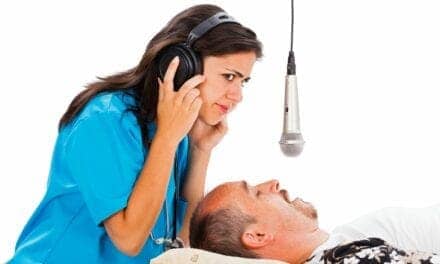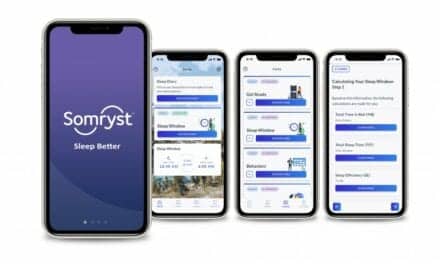
Behind us lie the riptides of home test adoption, compliance with uneven physician and technician certification requirements, the CPAP patient paper chase to justify PAP reimbursement, and the stop and go of CPAP competitive bidding. Ahead are the rocky shoals of lower reimbursement. Underlying all is the opportunity to serve a sea of undiagnosed patients with treatable sleep disorders.
The good news, of course, is that the sleep field is growing. The Office of Inspector General (OIG) of the US Department of Health and Human Services notes that Medicare payments for polysomnography alone increased from $62 million in 2001 to $235 million in 2009.
The bad news is the trend toward lower reimbursement for sleep testing. Starting this year, Medicare dropped its global reimbursement for basic, in-lab, attended polysomnography (CPT Code 95810) by about 9%. Medicare’s global reimbursement for the unattended sleep test billed as CPT Code 95806 fell around 11% from 2010, as did the global reimbursement for polysomnography with CPAP, CPT Code 95811.
Driving the cuts for sleep testing was Medicare’s update of the physician’s work needed to perform the interpretation. Medicare’s rates had been based on a physician spending about 95 minutes for the review and interpretation of each sleep study.
In 2010, the AMA’s Specialty Society Relative Value Scale Update Committee (RUC) reviewed the amount of time that physicians typically take to interpret sleep studies. The RUC recommended much lower physician values to Medicare for payment of sleep test interpretations. Medicare adopted the RUC’s recommendations and, added to Medicare’s uniform 8% reduction for all services, lowered the physician reimbursement for sleep testing approximately 27% in 2011 from 2010 levels.

Daniel B. Brown, Esq
CHALLENGES FACING SLEEP PHYSICIANS
The biggest challenge, then, for sleep physicians this year is the drop in Medicare reimbursement for sleep test interpretations. For example, this year Medicare dropped its reimbursement for the professional interpretation of CPAP polysomnographic studies billed as CPT Code 95811 to approximately $131.15 from about $185.47 last year, or about a 29% decrease. Reimbursement for the physician component of traditional polysomnography billed as CPT Code 95810 fell about 27% to approximately $125.37 this year from about $171.83 last year. And the professional component of unattended home tests billed as CPT Code 95806 fell about 26% to approximately $62.86 this year from about $82.23 last year. The industry can expect commercial insurance companies to react to and mimic Medicare’s reimbursement reductions over time.
THE STAND-ALONE SLEEP LAB
Operators of sleep labs that are independent of hospitals and physicians will experience their own set of challenges. An initial hurdle is state licensure or reporting laws. Florida and New Jersey have long-standing laws on the books requiring freestanding labs to obtain licensure.
Oklahoma also has adopted sleep lab regulation. Although not a true licensure law, the Oklahoma Sleep Diagnostic Testing Regulation Act requires that all nonhospital labs be fully or provisionally certified or accredited by the American Academy of Sleep Medicine (AASM), the Accreditation Commission for Health Care (ACHC), or The Joint Commission as a condition to performing a sleep test.
The trend toward more state regulation of sleep labs and sleep technicians can be expected to continue in the coming years.
Different challenges face stand-alone labs that bill Medicare for sleep tests as IDTFs. Regulators tend to treat IDTFs with suspicion. Some are eager to pounce on even the slightest technical matter. Making sure that each lab site is separately enrolled as an IDTF is important, as well as following the intricate physician and technician qualification rules applicable to Part B Medicare Administrative Contractor (MAC) jurisdiction.
IDTFs also are prohibited from sharing and subleasing space to other Medicare-enrolled entities, such as the sleep entity’s affiliated sleep physician. The rule has caused much confusion, some of which CMS clarified in an appeals case decided in November 2010.
In Proactive Medical, LLC, Docket No. A-10-85 (Decision No 2346, November 22, 2010), Proactive (the IDTF) leased space from a Medicare-enrolled physician to perform vascular studies billed as IDTF services. A surveyor visited the office suite and found two offending factors: (i) the IDTF shared waiting and reception areas inside the doctor’s office, and (ii) the IDTF leased space from the doctor to perform IDTF services as the doctor’s sublessee inside the doctor’s suite.
Consistent with published CMS guidance, the Appeals Board said it was fine for the IDTF and the doctor to share waiting and reception areas. More importantly, the Appeals Board concluded that the no-lease rule permits a doctor (or some other Medicare-enrolled entity) to lease or sublease to an IDTF—but not for the doctor to lease space from the IDTF. The Appeals Board also clarified the IDTF must have exclusive use of the testing space leased from the doctor. In other words, the physician would not be permitted to use the IDTF space for examinations or to perform their own IDTF testing services.
These principles are applicable to IDTF sleep labs wishing to lease space from Medicare physicians or other Medicare-enrolled entities.
HOME TESTING ROLLER COASTER
The final reimbursement numbers for home sleep testing are in, and the results are uniformly low.
The American Medical Association published two new CPT codes for sleep testing: 95800 and 95801. These codes are intended to replace the temporary T-Codes, 0203T and 0204T, as well as the more entrenched “G-Codes,” G0398, G0399, and G0400. Some MACs have already removed CPT Code 95806 from their reimbursement rolls in favor of these two new home test CPT codes. Others still retain the traditional CPT Code 95806—at least for now.
As expected, the new home test codes do away with the various “levels” of home testing devices in favor of two broad measurement categories. The first, and more extensive, is CPT code 95800 to be used for each “sleep study, unattended, simultaneous recording, heart rate, oxygen saturation, respiratory analysis, and sleep time.” The other new code, CPT Code 95801, describes a less complex situation: sleep study, unattended, measuring a minimum of heart rate, oxygen saturation, and respiratory analysis. The difference is the lack of sleep time. The measure of respiratory analysis applicable to 95800 and 95801 may be gauged either by airflow or by peripheral arterial tone.
What was unexpected was the rich reimbursement CMS initially published in November 2010 for these new home sleep test codes: around $1,400 for CPT Code 95800 and around $2,400 for the less complex CPT Code 98501.
In January of this year, CMS admitted to using the wrong inputs in calculating the practice expense values of the new home sleep test codes. The final global reimbursement for these services is down considerably to about $205.56 for CPT Code 95800 and approximately $96.83 for CPT Code 95801.
On the hospital side, CMS has assigned the Ambulatory Payment Classification (APC) group 0213 to the new CPT home testing codes 95800 and 95801. This is the same APC group assigned to the familiar CPT Code 95806 for the unattended sleep study and for each of the three G-Codes for home sleep testing, G0398, G0399, and G0400. CMS pays services billed under APC 0213 at the rate of $166.64, which is up 4% from last year’s payment.
Home test rates on the commercial side are likewise depressed. For example, Blue Cross/Blue Shield of Texas published its 2011 rates for home testing as follows: $151.65 globally for CPT Code G0398, $126.38 for CPT Code G0399, and $101.10 for CPT Code G0400.
BILLING MULTIPLE HOME TESTS
At least one Medicare Part B MAC has clarified the meaning of “unit billing” of home sleep tests. Highmark Medical Services acknowledges in its sleep testing LCD that conducting a home sleep test over multiple nights is reasonable and necessary. But Highmark warns that Medicare recognizes the performance of multiple nights of home sleep testing as only one study for reimbursement purposes. Thus, Highmark will reimburse home sleep testing only once per episode of testing even if multiple tests are performed as part of the episode.
HOSPITAL SLEEP LAB
Reimbursement for sleep tests billed as outpatient hospital services held its own in the 2011 cycle. CMS reimburses hospitals for outpatient sleep tests based on the APC group assigned to the activity. Services are assigned to APCs based on similar clinical characteristics and similar costs.
Medicare reimburses hospitals for outpatient polysomnography and MSLTs under APC 0209. For tests billed under APC 0209 in 2011, Medicare pays hospitals $780.77 per test, an increase of about 1% from last year’s payment of $773.57 per test.
Hospital sleep labs have two other scenarios to consider if they contract with third parties for the management of the hospital lab “under arrangement” for Medicare tests. First, the Office of Inspector General issued three Advisory Opinions late last year on the fraud and abuse aspects of a hospital’s entering into such management agreements. Two of the scenarios involved management fees payable on the basis of each test performed.
The OIG upheld a “per-click” hospital lab management fee, but only if the arrangement is free of certain “suspect characteristics.” A per-click arrangement could be suspect if the management company markets the hospital lab’s services, if referring physicians own any part of the management company, or if the management company or its affiliate supplies PAP or other equipment to patients tested at the hospital lab.
Recognizing the challenges facing sleep in 2011 is the first step to making successful adjustments. New changes and challenges are certain to come as the decade rolls on. Adding flexibility to any model can be one ingredient to withstand unseen storms.
Daniel B. Brown, Esq, is the managing shareholder of Brown, Dresevic, Gustafson, Iwrey, Kalmowitz and Pendleton, The Health Law Partners, LLC, Atlanta. He can be reached at (770) 804-6475 or [email protected].





